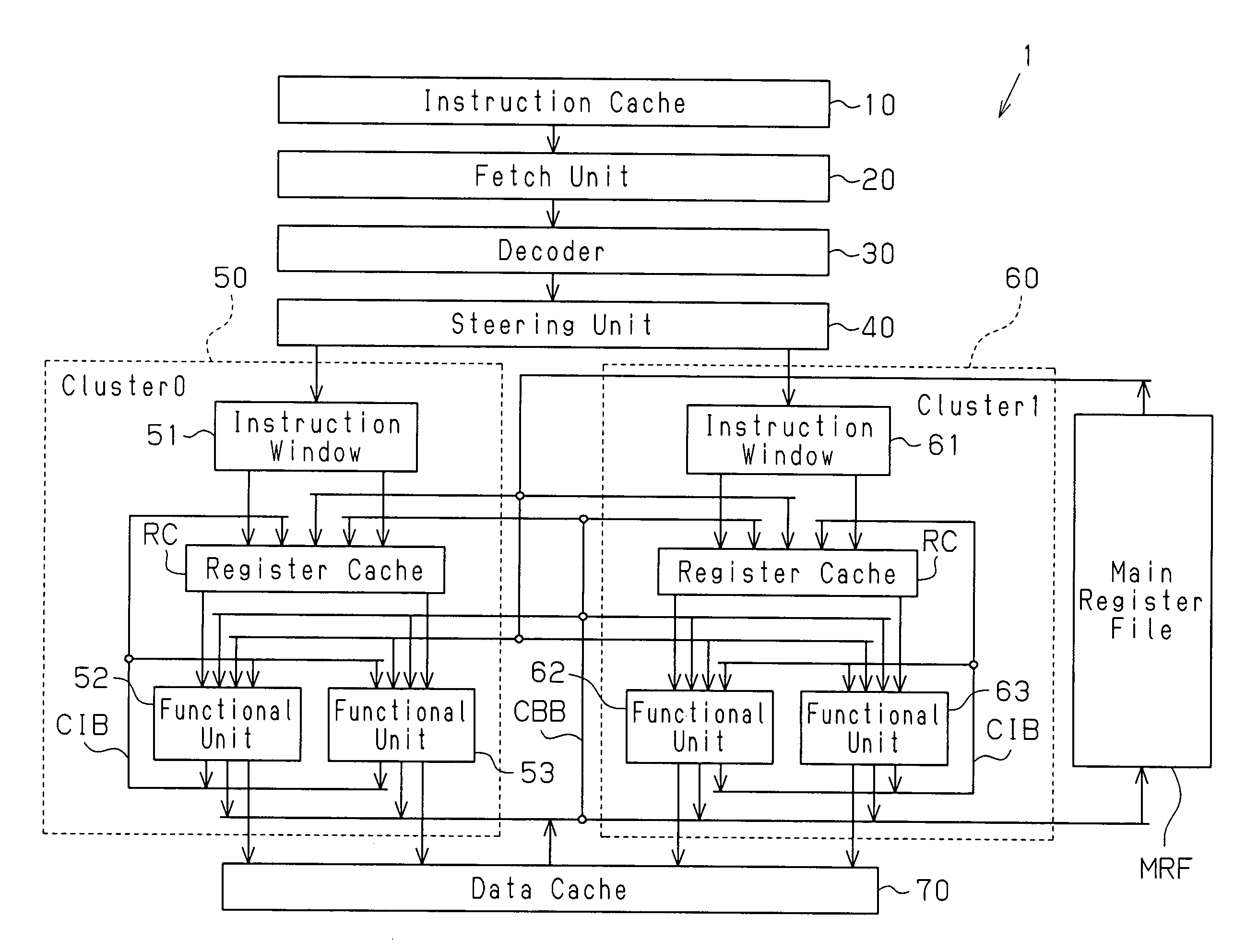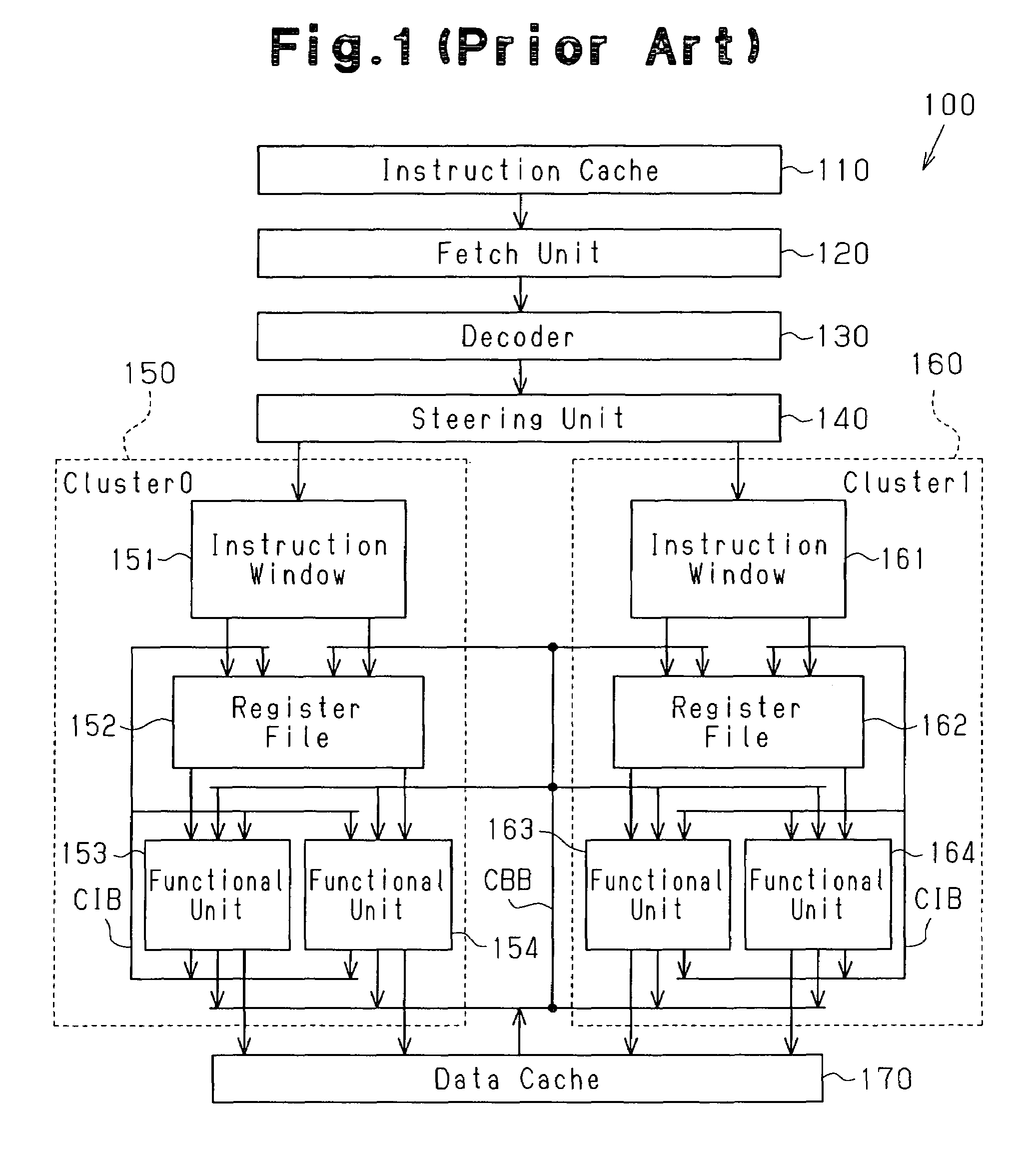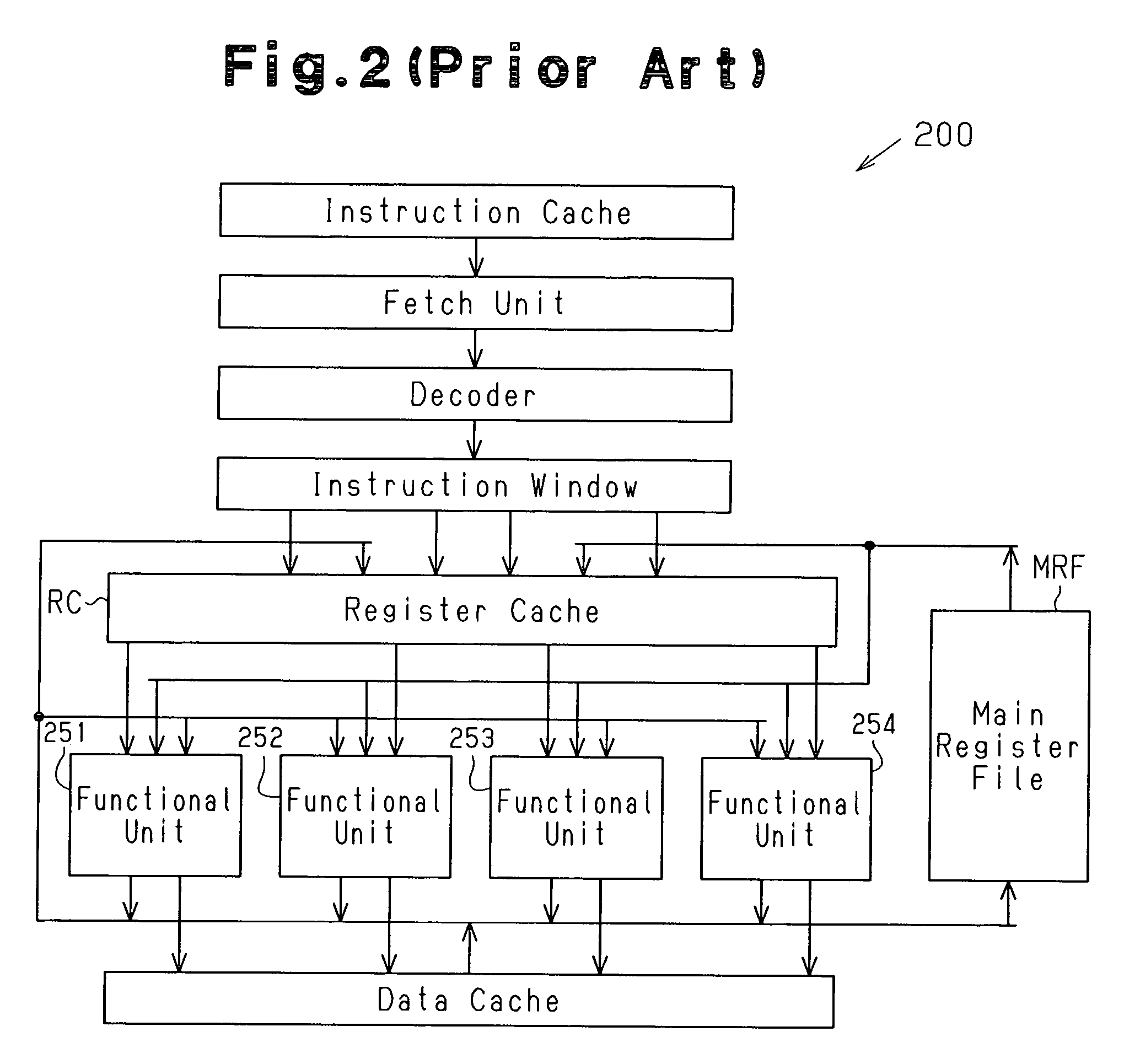Clustered superscalar processor with communication control between clusters
a superscalar processor and cluster technology, applied in the field of processors, can solve the problems of reducing performance, requiring a long access time, and increasing the miss rate of the register cache rc, so as to improve the performance of the register cache and reduce the miss rate
- Summary
- Abstract
- Description
- Claims
- Application Information
AI Technical Summary
Benefits of technology
Problems solved by technology
Method used
Image
Examples
first embodiment
[0030]A clustered superscalar processor 1 according to the present invention is described hereinafter with reference to the drawings. FIG. 3 is a schematic block diagram of the clustered superscalar processor 1. The clustered superscalar processor 1 incorporates a hierarchical register file, and each cluster has a register cache RC in place of the register file of each cluster in the conventional processor 100 of FIG. 1. Only one main register file MRF is provided for the entire processor 1, and it holds every register value. When an instruction result is generated, the instruction result is always written to the main register file MRF.
[0031]Execution results are written to the register caches RC based on various write policies described later. Writing to the register caches RC may be divided into writing to the register caches RC of clusters belonging to instructions of the output results, and writing to register caches RC of other clusters.
[0032]As shown in FIG. 3, the processor 1...
second embodiment
[0060]A superscalar processor according to the present invention will now be described with reference to the drawings.
[0061]The superscalar processor of the second embodiment realizes the “on-the-fly” of the first embodiment by another “check-and-write.”
[0062]This check-and-write is described in reference to the first embodiment while referring to FIGS. 6 and 7. FIG. 6 is a hardware structural diagram illustrating the check-and-write operation. FIG. 7 is a flowchart illustrating the check-and-write processing procedure.
[0063]Check-and-write will first be summarized. In check-and-write, when an instruction is issued from the instruction windows 51 and 61, the control unit checks whether or not the other instruction window 51 and 61 includes an instruction that refers to the execution result of that instruction (step S201 described later). When there is an instruction that is referred to (step S202: YES described later), the control unit global communicates the execution result to the...
third embodiment
[0082]In the third embodiment, global communication prediction is performed in accordance with the past history. Thus, global communication may be performed between clusters having a data dependency between chronologically (sequentially) separated instructions.
PUM
 Login to View More
Login to View More Abstract
Description
Claims
Application Information
 Login to View More
Login to View More - R&D
- Intellectual Property
- Life Sciences
- Materials
- Tech Scout
- Unparalleled Data Quality
- Higher Quality Content
- 60% Fewer Hallucinations
Browse by: Latest US Patents, China's latest patents, Technical Efficacy Thesaurus, Application Domain, Technology Topic, Popular Technical Reports.
© 2025 PatSnap. All rights reserved.Legal|Privacy policy|Modern Slavery Act Transparency Statement|Sitemap|About US| Contact US: help@patsnap.com



